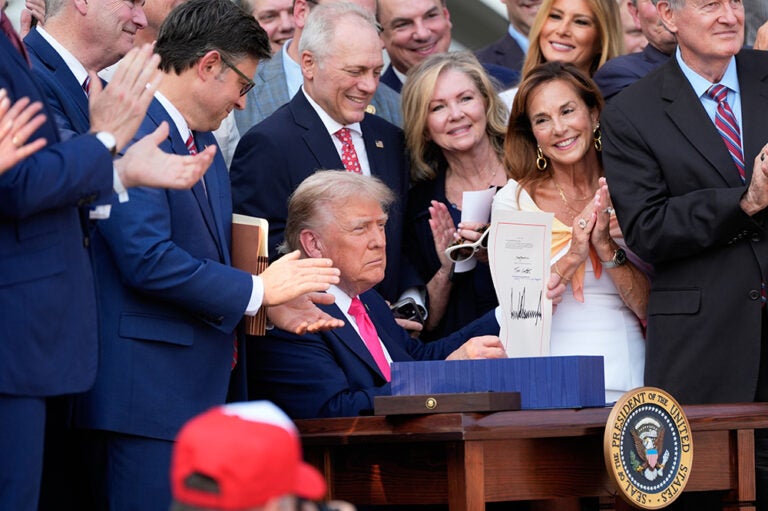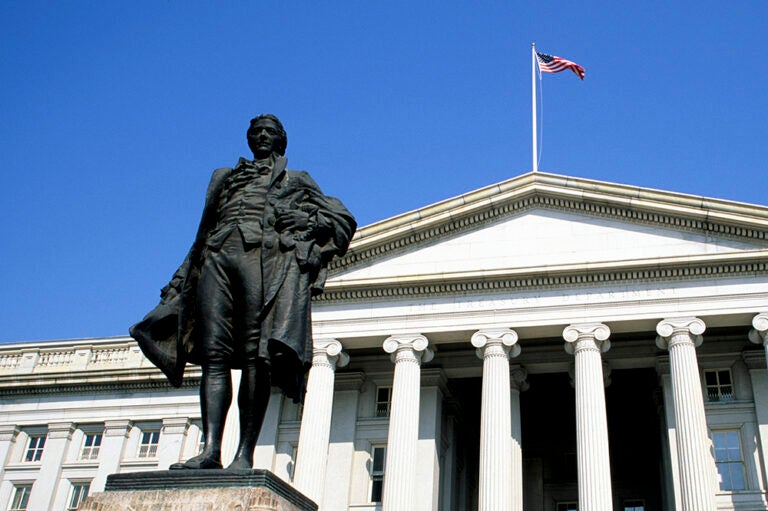The words deficit and debt come up frequently in discussions about the policy decisions that lawmakers face and are often confused for one another. So what exactly are the differences between the deficit and the debt?
What Is the Federal Budget Deficit?
The deficit is the annual difference between government spending and government revenue. Every year, the government takes in revenues in the form of taxes and other income, and spends money on various programs, such as national defense, Social Security, and healthcare. If the government spends more than it takes in, then it runs a deficit. If the government takes in more than it spends, it runs a surplus.
Since 1970, the U.S. government has run a deficit in all but four years (1998–2001) and that annual gap is projected to increase going forward.
What Is the Federal Debt?
The debt is the total amount of money the U.S. government owes. It represents the accumulation of past deficits, minus surpluses. Debt is like the balance on a credit card statement, which shows the total amount accrued over time. The amount of debt held by the public at the end of fiscal year 2024 was $28.2 trillion, or 98 percent of GDP.
Historically, periods with spikes in the deficit and a corresponding increase in the national debt have been associated with war or a severe economic downturn. Today, deficits have become the norm and are caused by a long-term, structural mismatch between spending and revenues stemming from an aging population, rising healthcare costs, mounting interest payments and revenues that are insufficient to cover the promises that have been made.
Looking Forward
By addressing that mismatch, policymakers can put the nation on a better path for economic growth, opportunity, and prosperity. A strong fiscal foundation creates positive conditions for growth, including increased access to capital, more resources for public and private investments in our future, improved consumer and business confidence, and a stronger safety net. No single approach will be perfect in everyone’s eyes, but leaders can draw upon the many good ideas that have been put forward from across the ideological spectrum in order to help ensure a brighter economic future for the next generation.
Photo by Stefano Salvetti/Getty Images
Further Reading
The Fed Reduced the Short-Term Rate Again, but Interest Costs Remain High
High interest rates on U.S. Treasury securities increase the federal government’s borrowing costs.
How Did the One Big Beautiful Bill Act Affect Federal Spending?
Overall, the OBBBA adds significantly to the nation’s debt, but the act contains net spending cuts that lessen that impact.
What Types of Securities Does the Treasury Issue?
Learn about the different types of Treasury securities issued to the public as well as trends in interest rates and maturity terms.


